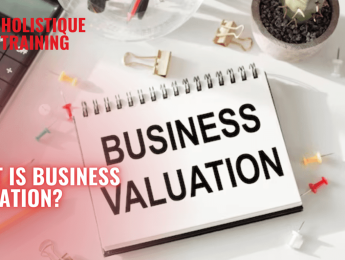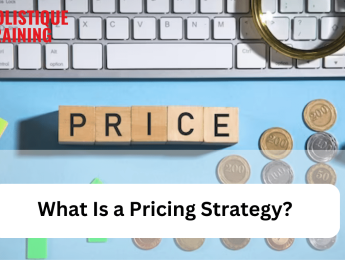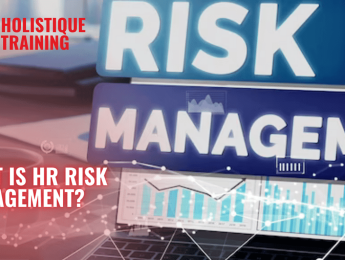- Table of Contents
- What Is Business Valuation?
- Why Is Business Valuation Important?
- Strategic Decision-Making
- Investment and Financing
- Mergers and Acquisitions
- Selling Your Business
- Employee Compensation
- Estate Planning and Taxes
- Legal Matters
- Benchmarking and Performance Evaluation
- Risk Mitigation
- Stakeholder Communication
- Market Positioning
- Partnership and Succession Planning
- What Factors Determine Business Valuation?
- a) Financial Performance
- b) Market Conditions
- c) Assets and Liabilities
- d) Management Team
- e) Customer Base
- f) Risk Assessment
- g) Economic Outlook
- 7 Business Valuation Methods
- 1- Asset-Based Valuation
- 2- Market Capitalisation
- 3- Earnings Multiplier (P/E Ratio)
- 4- Discounted Cash Flow (DCF)
- 5- Comparable Company Analysis
- 6- Comparable Transaction Analysis
- 7- Risk Factor Summation
- Which Method Is Right for You?
- 1. Asset-Based Valuation
- 2. Market Capitalisation
- 3. Earnings Multiplier (P/E Ratio)
- 4. Discounted Cash Flow (DCF)
- 5. Comparable Company Analysis
- 6. Comparable Transaction Analysis
- 7. Risk Factor Summation
- Conclusion
Picture this: You've poured countless hours, sweat, and resources into building your business from the ground up. It's your brainchild, your passion, and a testament to your hard work. But have you ever wondered what it's truly worth? What would someone be willing to pay for it? How do you even determine its value? This is where business valuation comes into play. In this comprehensive guide, we will unravel the intricacies of business valuation, explore its importance, delve into the factors that influence it, and uncover 7 distinct valuation methods to help you understand your company's value better.
What Is Business Valuation?
At its core, business valuation is the process of determining the economic value of a company. It's akin to putting a price tag on your business, considering various factors and methodologies to arrive at an accurate estimate. Whether you're seeking to sell your business, attract investors, secure financing, or simply gain insight into your company's performance, valuation is a crucial step.
Table 1: Key Performance Indicators (KPIs) of Business Valuation
Key Performance Indicators | Description |
Financial Health | Assess stability through revenue, profit, and debt. |
Growth Potential | Evaluate opportunities for expansion and market presence. |
Market Positioning | Examine competitiveness and differentiation strategies within the market. |
Management Effectiveness | Gauge the impact of leadership on business success. |
Risk Assessment | Analyse potential risks affecting business stability and valuation. |
Why Is Business Valuation Important?
In the ever-evolving landscape of commerce, understanding your company's value is not just an option; it's a strategic imperative. Business valuation serves as a multifaceted tool that extends beyond mere financial figures, providing a holistic view of your business's position in the market and its potential for growth. Let's explore the key reasons why business valuation is of paramount importance:
Strategic Decision-Making
Business valuation acts as a compass for strategicdecision-making. By providing a comprehensive understanding of the company's strengths and weaknesses, it equips business owners and leaders with valuable insights. Armed with this knowledge, strategic planning becomes more precise, allowing for the efficient allocation of resources and the formulation of strategies that align seamlessly with long-term goals.
Investment and Financing
For businesses seeking external capital, whether from investors, lenders, or venture capitalists, a well-substantiated business valuation becomes a compelling asset. It not only showcases the business's potential for growth but also minimises perceived risks. This, in turn, can significantly impact the business's ability to secure funding on favourable terms, opening avenues for expansion and development.
Mergers and Acquisitions
In the complex realm of mergers, acquisitions, and divestitures, business valuation plays a pivotal role in negotiations. It acts as a neutral arbiter, providing an objective basis for assessing the worth of the entities involved. This ensures that both parties arrive at a fair deal, fostering a conducive environment for successful transactions.
Selling Your Business
For entrepreneurs contemplating the sale of their business, knowing its value is more than just a preliminary step—it's a strategic move. Accurate valuation is essential for pricing the business competitively. An overpriced business risks deterring potential buyers, while an underpriced one could lead to missed opportunities. Thus, business valuation becomes a key determinant in the success of the selling process.
Employee Compensation
For businesses adopting equity-based compensation models, a reliable business valuation becomes a cornerstone. It ensures fairness and transparency in the distribution of equity among employees, thereby preventing disputes and fostering a positive work environment.
Estate Planning and Taxes
Valuation is a critical component of estate planning, especially for family-owned businesses. It ensures a seamless transition of the business to heirs and impacts estate tax liability. Accurate valuation becomes instrumental in minimising tax burdens, preserving the business's legacy, and facilitating a smooth transfer of ownership.
Legal Matters
In legal proceedings such as shareholder disputes, divorce cases involving business assets, and insurance claims, the significance of an unbiased business valuation cannot be overstated. It provides a fair and objective basis for resolution, potentially averting prolonged legal battles and ensuring a just outcome for all parties involved.
Benchmarking and Performance Evaluation
Business valuation is not a static figure but a dynamic benchmark that reflects the company's current worth. Periodic valuations offer business owners the ability to gauge their progress, evaluate the effectiveness of existing strategies, and make informed adjustments for future growth.
Risk Mitigation
Business valuation serves as a proactive tool for risk mitigation. By highlighting potential risks and vulnerabilities, businesses can address them preemptively, thereby enhancing their resilience and minimising the impact of unforeseen challenges.
Stakeholder Communication
Accurate business valuation enhances credibility with stakeholders, including investors, partners, and employees. It communicates a commitment to transparency and responsible business management, fostering trust and long-term relationships.
Market Positioning
Understanding your company's value in relation to competitors provides invaluable insights into market positioning. This knowledge is instrumental in developing effective marketing strategies that differentiate the business and attract customers, contributing to sustained growth and competitiveness.
Partnership and Succession Planning
In closely-held businesses, business valuation is indispensable for partnership agreements and succession planning. It ensures a smooth transition and an equitable distribution of ownership, reducing the potential for conflicts among stakeholders.
In short, business valuation is not just a numerical exercise; it's a holistic approach to understanding and optimising the myriad facets of a business. It empowers business owners to make informed decisions, attract external investments, navigate complex legal scenarios, and foster a resilient and competitive enterprise. As you embark on the journey of nurturing and growing your business, recognising and leveraging its true worth becomes an invaluable asset in itself.
What Factors Determine Business Valuation?
Business valuation isn't a one-size-fits-all equation. It's a nuanced process influenced by a myriad of factors. Let's explore some key determinants:
a) Financial Performance
The heartbeat of any business lies in its financial performance. Historical and projected financial data, including revenue, profit margins, and growth rate, significantly impact the valuation. Investors and analysts scrutinise these figures to gauge the company's financial health, stability, and potential for future growth.
b) Market Conditions
Business valuation is intricately tied to the broader market context. The state of the industry, prevailing market trends, and the level of competition all influence how the business is perceived in terms of value. A company thriving in a growing market may be valued differently than one facing challenges in a saturated or declining industry.
c) Assets and Liabilities
Tangible and intangible assets, along with liabilities, are critical components in assessing a company's value. Tangible assets like real estate, equipment, and inventory are considered, as are intangible assets such as intellectual property (patents, trademarks). Subtracting liabilities from the total asset value provides the net asset value, a key metric in certain valuation methods.
d) Management Team
The leadership and vision of a company's management team play a pivotal role in shaping its valuation. Investors and potential buyers assess the expertise and experience of the management team, recognising that a capable and visionary leadership can positively impact the company's future performance and, consequently, its value.
e) Customer Base
The size, loyalty, and diversity of a company's customer base contribute significantly to its valuation. A broad and loyal customer base is an indicator of stability and growth potential. Businesses with a strong and diverse customer portfolio are often perceived as more resilient in the face of market fluctuations.
f) Risk Assessment
Investors and acquirers conduct a thorough risk assessment when evaluating a business. The level of risk associated with a company can have a direct impact on its valuation. Lower risk is generally associated with a higher valuation as it signifies a more stable and predictable business environment.
g) Economic Outlook
Broader economic factors, such as interest rates, inflation, and the overall economic health of the region or country, can influence how a business is valued. Economic downturns or uncertainties may lead to a more conservative valuation, while a robust economic environment could result in a more optimistic assessment.
These factors do not operate in isolation but are interconnected, creating a complex web that forms the basis of business valuation. A thorough analysis that considers the interplay of these elements provides a more accurate and holistic understanding of a company's economic worth.
Understanding these factors is not only crucial for business owners but also for investors, financial analysts, and other stakeholders involved in the decision-making processes around a company. Each of these determinants requires careful consideration and analysis to arrive at a well-rounded valuation that reflects the true potential and standing of the business in the market.
As businesses navigate through dynamic market conditions and changing economic landscapes, a keen awareness of these factors becomes instrumental in adapting strategies, making informed financial decisions, and ultimately unlocking the true value of a company.
7 Business Valuation Methods
When it comes to valuing your business, there isn't a one-size-fits-all approach. The art and science of business valuation involve employing diverse methods, each offering a unique perspective on your company's worth. Let's take a deep dive into these methods to understand how they work and when they're most applicable:
1- Asset-Based Valuation
This method involves taking inventory of a business's tangible and intangible assets. Particularly relevant for asset-intensive industries like manufacturing, this approach appraises tangible assets such as equipment, real estate, and inventory. Additionally, it evaluates intangible assets like patents and trademarks. The net asset value is derived by subtracting liabilities from the total asset value. Asset-based valuation is straightforward and proves useful for stable businesses with a substantial asset base, providing a clear picture of the company's value based on its tangible and intangible holdings.
2- Market Capitalisation
Market Capitalisation is commonly used for publicly traded companies. This method determines a business's value by multiplying its stock price with the total number of outstanding shares. The underlying assumption is that the stock market accurately reflects the company's value. However, it's important to note that this method might not be ideal for private companies with limited shares and no public trading. Market capitalisation is a dynamic method that provides a real-time snapshot of a company's perceived value in the public market.
3- Earnings Multiplier (P/E Ratio)
For businesses with consistent earnings, this method is popular. It involves calculating theprice-to-earnings (P/E) ratio by dividing the market value per share by the earnings per share. The resulting multiplier is then applied to the business's earnings to estimate its value. The P/E ratio reflects investors' confidence in the company's growth potential. However, it's crucial to consider that this method might not accurately capture the nuances of businesses with irregular earnings or those in their early growth stages.
4- Discounted Cash Flow (DCF)
Thediscounted cash flow method is a robust technique that projects future cash flows your business is expected to generate and discounts them back to present value. This approach considers the time value of money, reflecting that a dollar received in the future is worth less than a dollar today. DCF requires comprehensive financial projections and assumptions about growth rates and discount rates. While it's more complex, it provides a thorough understanding of your business's intrinsic value.
5- Comparable Company Analysis
Comparable Company Analysis draws parallels to the real estate practice of comparing similar properties. In this method, a business's financial metrics are assessed against those of publicly traded companies in the same industry. The resulting valuation is a relative estimate based on industry benchmarks. This method is particularly useful for understanding where a business stands in the competitive landscape and gauging its performance against industry peers.
6- Comparable Transaction Analysis
Similar to Comparable Company Analysis, this method compares a business to recent transactions such as mergers, acquisitions, or sales involving similar companies. It provides insight into how the market values businesses with similar characteristics. However, data availability and finding truly comparable transactions can be challenging. Comparable Transaction Analysis offers a real-world perspective on a company's value by considering the prices paid for similar businesses in recent market transactions.
7- Risk Factor Summation
Unlike quantitative methods, the Risk Factor Summation method takes a qualitative approach to evaluate a business. It assesses the company based on a set of risk factors, assigning each factor a weight based on its relevance to the business. These factors may include market competition, management experience, industry volatility, and more. The cumulative score influences the valuation. This method is particularly useful when financial data is limited or when subjective factors play a significant role in determining the company's value. While it requires careful consideration due to its subjective nature, it provides a holistic view by incorporating qualitative aspects into the valuation process.
Choosing the appropriate valuation method requires a deep understanding of the business, its industry, and the purpose of the valuation. Often, a combination of these methods may be employed to triangulate a more accurate and comprehensive business valuation. Consulting with financial professionals, including valuation experts, investment bankers, and financial advisors, can guide businesses toward the most suitable approach based on their unique circumstances and objectives.
Which Method Is Right for You?
Selecting the appropriate business valuation method is a critical decision that hinges on various factors, including the nature of your business, industry dynamics, and the specific goals of the valuation. There's no one-size-fits-all approach, and the suitability of a method often depends on the unique characteristics of the company being evaluated. Here’s how you could know which valuation method best fits your company needs:
1. Asset-Based Valuation
If your business operates in an asset-intensive industry, such as manufacturing, and the value is closely tied to tangible and intangible assets, the Asset-Based Valuation method may be ideal. This approach provides a clear and tangible representation of your company's worth based on its physical and intellectual holdings. It's particularly relevant for stable businesses with a significant asset base.
2. Market Capitalisation
Market Capitalisation is well-suited for publicly traded companies. If your business has an active stock presence and its value is reflective of market sentiments, this method provides real-time insights. However, for private companies without public trading, or those with limited shares, alternative methods might be more appropriate.
3. Earnings Multiplier (P/E Ratio)
For businesses with a track record of consistent earnings, the Earnings Multiplier method is effective. If your company operates in a mature industry and has a stable earnings history, this method captures investor confidence in its growth potential. However, be cautious if your business exhibits irregular earnings or is in an early growth stage, as the P/E ratio may not accurately represent its true value.
4. Discounted Cash Flow (DCF)
If your focus is on long-term value creation and you can provide comprehensive financial projections, the Discounted Cash Flow method is robust. This method is suitable for businesses with a clear understanding of future cash flows and the ability to estimate growth rates and discount rates. It requires a detailed financial analysis but provides a thorough understanding of intrinsic business value.
5. Comparable Company Analysis
When understanding where your business stands in the competitive landscape is crucial, the Comparable Company Analysis method is valuable. If your company's financial metrics closely align with those of publicly traded companies in the same industry, this method offers a relative estimate based on industry benchmarks.
6. Comparable Transaction Analysis
If you're looking for a real-world perspective on your business's value based on recent market transactions involving similar companies, Comparable Transaction Analysis is beneficial. However, this method may face challenges related to data availability and finding truly comparable transactions.
7. Risk Factor Summation
When dealing with limited financial data or when subjective factors significantly influence your business's value, the Risk Factor Summation method provides a qualitative approach. If your company's value is strongly tied to intangible factors like brand reputation, market positioning, or management capabilities, this method offers a holistic view.
In practice, the choice of valuation method often involves a combination of approaches to triangulate a more accurate estimate. Consulting financial professionals with expertise in business valuation, such as valuation experts, investment bankers, and financial advisors, can be immensely beneficial. They can guide you through the intricacies of each method, helping you navigate the complexities of business valuation based on your unique circumstances and objectives.
Ultimately, the goal is to select a method—or a combination of methods—that aligns with your business's characteristics and the specific purpose of the valuation. A well-informed decision in choosing the right method enhances the accuracy and relevance of the valuation, providing you with valuable insights into your company's true worth.
Conclusion
Understanding your company's value is a fundamental aspect of effective business management and strategic decision-making. Business valuation is not only a number but a roadmap to unlocking opportunities and mitigating risks. By comprehending the factors that determine valuation and exploring various valuation methods, you can navigate the complex landscape of business value estimation with confidence. So, as you continue to nurture and grow your business, remember that knowing its worth is an invaluable asset in itself.
























